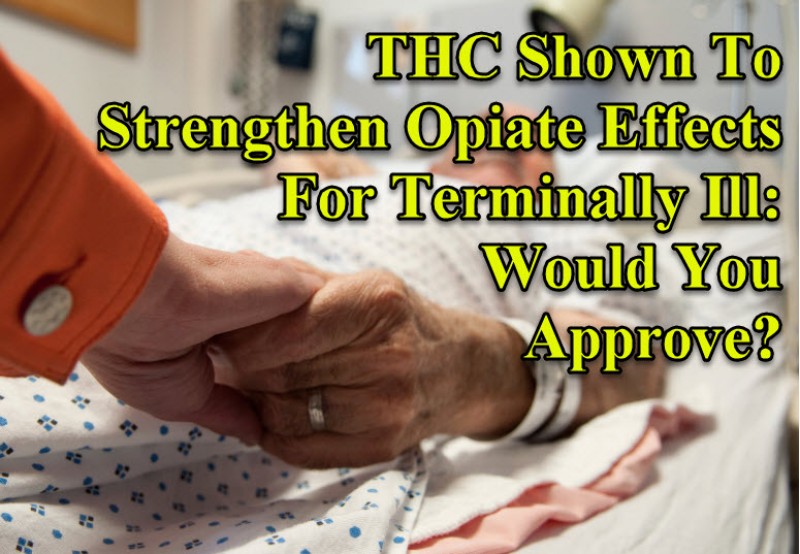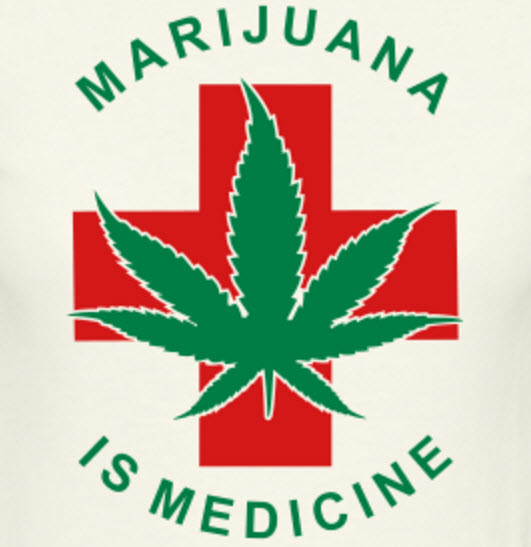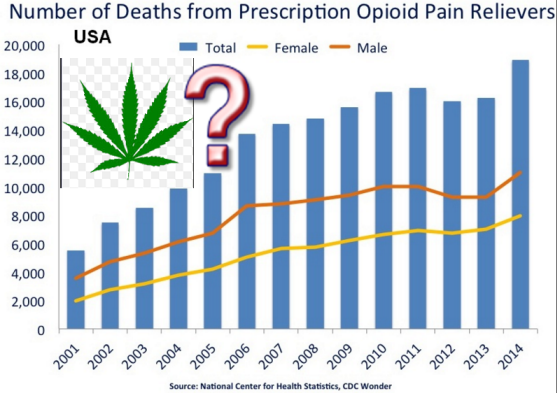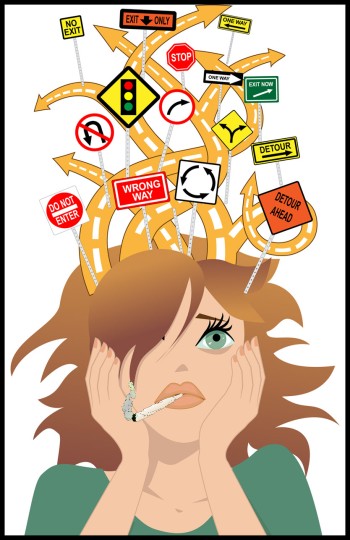THC Shown To Strengthen Opiate Effects For Terminally Ill: Would You Approve?
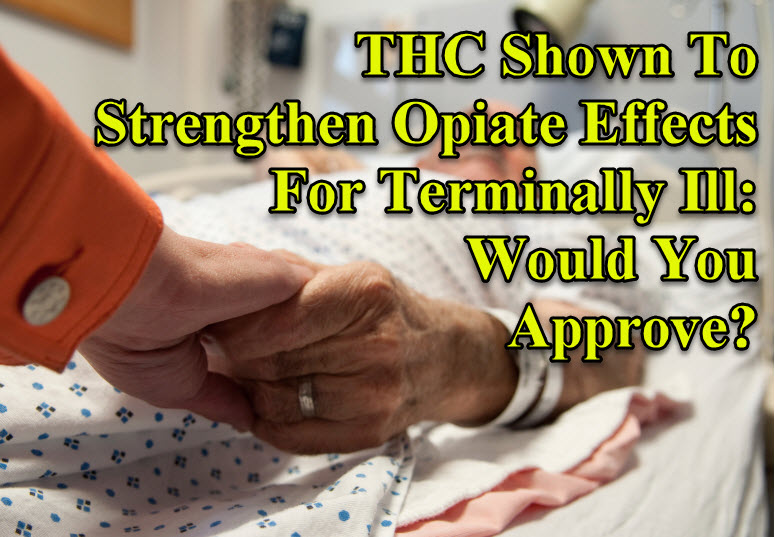
The impact of the current opioid crisis has become too loud to ignore.
At the rate we’re going, there are 175 Americans dying each day from opioids alone. In 2016, opioid deaths were up 21%, killing more people than the AIDS epidemic. By 2020, opioids are expected to take the lives of one million people. One million. Let that sink in for a minute…
Opioid abuse occurs both ways: there are the doctors who prescribe them, oftentimes in doses that are far beyond what’s considered safe, oftentimes only for minor and acute conditions; and then there are the opioid-naïve patients, who take the prescribed opioids simply because they don’t know better. Then unknowingly, an addiction creeps in, or an overdose occurs.
We all know the harms of opioid abuse.
We also do know that cannabis (legalization) is the best, safest, and most effective antidote to curbing opioid addictions and preventing even more deaths. Cannabis is just as effective as opioids in treating pain (in some cases even more effective), but without the harmful side effects.
However, there are different kinds of pain caused by different conditions. Many feel that cannabis shouldn’t be used to replace opioids because it should be the FIRST course of treatment, not the other way around. Using cannabis together with opioids is another way of reducing the risk for overdose, since this would decrease the opioid dosage needed for it to be effective.
But then there are those that say to do away with opioids…. Completely.
What About The Terminally Ill?
In 2016, the Centers of Disease Control (CDC) released a document entitled, Guideline for Prescribing Opioids for Chronic Pain. In it, the CDC advised against recommending opioids for many kinds of chronic pain if the scientific evidence supporting long-term efficacy was lacking. CDC as well as other stakeholders are finally waking up to the reality that it has become necessary to assess the risk of a patient and reduce the risks of using opioids.
But what about the terminally ill who have a limited life expectancy? Wouldn’t it be cruel to withhold opioids, even at high doses, and even if used in combination with cannabis to treat the pain? What if cannabis alone is not enough to treat their pain?
A recent study published in the journal Neuropsychopharmacology revealed that when used in combination, THC works well with opioids to deliver stronger pain relief. The researchers found that the result was much more powerful than either medication on its own.
The study was conducted using a double-blinded and placebo-controlled method to analyze the effects of smoked cannabis that contained 0% or 5.3% THC together with oxycodone administered in 5mg doses, or what is known as the lowest pain-relieving dose, and 2.5mg which is the sub-threshold. They found that neither the cannabis nor the 2.5mg oxycodone was able to increase the pain threshold in the patients. But when used together, 5.3% THC and 2.5mg oxycodone delivered significant pain reduction.
The findings suggest that THC and opioids interact in the body through the CB1 receptors, which are activated by THC, and the opioid receptors, activated by the opioid chemicals contained in oxycodone. They clearly enhance each other’s effects to substantially decrease pain, which is why THC or opioids on its own doesn’t do much but when administered together, can effectively relieve pain.
But what if the patient already has an opioid addiction AND also has a terminal condition?
Enter the principle called double effect. This applies to healthcare professionals who have to take care of terminally ill patients. It is defined as the permissible act wherein there is more than one possible outcome, “even when one of the outcomes is morally wrong.”
Let’s say that the correct amount of painkillers that would be effective in controlling the pain of a terminally sick patient is given even if the caregiver knows that there is the possibility it could end the life of the patient, because the INTENTION is to help them control the pain, and not to end the life of the patient. “Supreme court judges, ethicists, and healthcare professionals justify the use of high doses of opioids for severe pain of dying patients, even in the amounts that may hasten death,” says a 2000 paper entitled: Ethical issues: Pain management.
When caregivers apply the double effect principle and think that giving more opioids may result in hastened death, they end up hesitating to give more opioids than they believe is necessary.
If it were your family member in question, would you or would you not approve the administration of more opioids despite: A) using cannabis but it is not enough alone; and B) the possibility of hastening death even if you intended to provide them with the pain relief they very much needed?
OTHER STORIES YOU MAY ENJOY...
CANNABIS IS MEDICINE FOR THOUSANDS, CLICK HERE TO READ..
